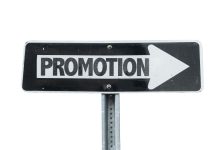You have to give the NFL this: the league knows how to play the optics game. Just days before news broke that the league was suspending five players for violating its gambling policy, the NFL got ahead of the news with the announcement of the formation of the Coalition for Responsible Gambling Advertising.
This lesson in optics is something the US gambling industry should pay attention to.
Independent oversight received better than self-policing
Most of the bullet points of the Coalition for Responsible Gambling Advertising match up with the existing Responsible Marketing Code for Sports Wagering offered by the American Gaming Association, which is something many people on social media noticed when the new coalition was announced. The difference though is one of optics. Instead of sportsbook operators themselves saying, “Hey, don’t worry, we’ll be policing ourselves”, this oversight is a degree removed.
Sure, the oversight is coming from leagues and broadcasters that have profited quite generously off sports, but they are big names not directly connected to gambling. Putting their names and seals behind a promise to do better means something to the average person.
You can criticize media, but that can’t be all you do
As the mainstream media conversation around sports betting and its growing presence in US culture gets louder, it is the kind of move that feels like somebody is doing something. It also stands in stark contrast to responses from groups like the AGA that choose to be critical of reporting from the New York Times, Newsweek, and others.
When the NYT coverage of sports betting dropped late last year, even SBC Americas published a response noting the discrepancies in some of the reporting. It is fair to call out the misconceptions and inaccuracies. But that can’t be all that we do.
Banning terms like “risk-free” bet is a step in the right direction, but we’ve seen from the reaction that it is only when regulators crack down with enforcement that it lands with the public. It is one thing to self-police, it is another to be held accountable with $1 million in fines like we saw in Ohio.
The response to our critics can’t just be deflection and hollow gestures. Fines resonate because they feel like a real punishment for transgressions, but fines aren’t the long-term answer to the problem.
Repeated violations do the industry no favors
At a recent Massachusetts Gaming Commission meeting, Commissioner Eileen O’Brien asked the WynnBet team how she could feel comfortable with them still operating after they mistakenly accepted wagers on in-state college teams twice in the span of the first month of launch. She noted that it is her responsibility as a regulator to ensure this never happens again.
Yet it doesn’t seem like operators are all that concerned with never making a mistake again.
Iowa recently sanctioned BetMGM and other operators for allowing dozens of people on the self-exclusion to bet. Within a month of launching, every retail operator in Massachusetts broke the rules about in-state college betting, not just Encore Boston Harbor.
What operators do seem concerned with creeping as close to the edge of a regulation without tipping over into a violation. Be it simply replacing “risk-free” with “bonus bet” or debating the tonality of the phrase “Can’t Lose Parlay”, operators are not seeing the response and taking a massive step back, instead just inching away from the cliffside and hoping it is sufficient.
What we’ve learned though is that, oftentimes, the public doesn’t just need to know that nothing wrong is happening, they need a framework in which it is impossible for something to go wrong. Like O’Brien said, the point of the Massachusetts regulated market is to ensure there are never any bets on prohibited games, not that there are only the occasional ones.
People need to know nothing objectionable is happening
Heck, this is an argument we as an industry make all the time when it comes to the offshore market. Countless hearings feature lobbyists and industry representatives explaining that a regulated market ensures customers are treated fairly, that high standards are met, and that there is recourse if something goes wrong.
Yet, when it comes to online sports betting in particular, many are keen to say “just trust us.”
It reminds me of a time when I used to produce livestreaming poker tournaments for a major poker tour. At one event, I was in the streaming area, which is where the hole cards are shown live to certain crew member (not me, as the commentary team I was producing was watching on a delay). One of my closest friends ended up winning the tournament. As his friends poured onto the stage for the winner photo, he yelled at me to join and I balked.
Later I explained my decision to him this way. “You know I didn’t see the hole cards and I know that I didn’t help you win, but I can’t say with certainty that the other players at the table or the people at home know that. You earned this win and I don’t want to do anything that would even cast even the smallest shadow of doubt over it.”
For the sake of optics, sports betting needs a paradigm shift in thinking away from “let’s be sure we aren’t doing anything wrong” to “let’s be sure everyone understands we aren’t doing anything wrong.”
Instead of insisting your college sports betting deals are above the board and don’t involve a preponderance of under-21 individuals, don’t do college marketing deals.
Instead of having the name and face most clearly associated as the founder of your brand openly wagering on your platform because he is technically not an employee because he is technically on a loan-out agreement from another company, just don’t let him bet.
Stop waiting for the regulators to tell you where to draw the line and tiptoe to the edge. Move the line far enough back yourself that no one can question you.














